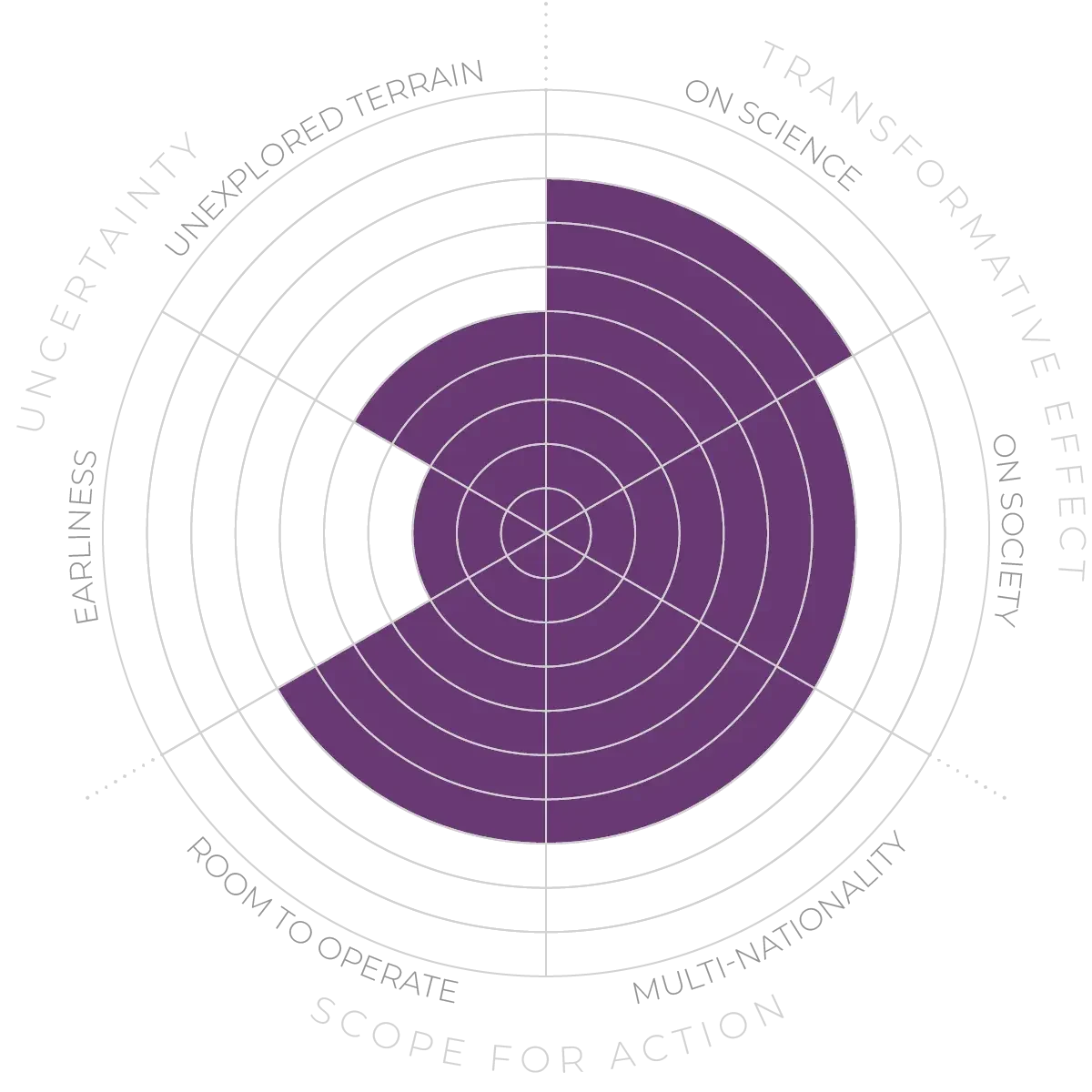Future Horizons:
10-yearhorizon
AI-driven science becomes routine in some areas
25-yearhorizon
AI-curated scientific disciplines emerge
As AI systems autonomously generate and test theories, simulate virtual organisms and link abstract reasoning to physical experimentation, AI becomes the curator of numerous scientific disciplines. Interdisciplinary AI collaboration creates new paradigms and research domains. Scientific progress reaches unprecedented levels, with AI becomes both a central research tool and object of scientific inquiry itself. AI systems begin to autonomously contribute foundational principles to scientific knowledge.
All science involves abstracting data into representations that make future data predictable. AI research, especially in world modelling, can be helpful to science if it focuses on learning these abstractions rather than reconstructing every detail. AI, as a “digital microscope”, provides novel, data-driven approaches to scientific problems, differing from classical rationalism and reductionism. Scientific discovery is currently constrained by the pace and cost of data generation, and AI can accelerate progress via automated experiment design and high-throughput simulation.12 AI will also democratise tools for scientific discovery, allowing for new digital experiments, hypothesis generation and global-scale simulations such as digital organisms and weather models.
AI may itself become a target of scientific study in terms of new mathematical frameworks and methods such as “vector-based probability”. There are open challenges still: one is achieving integration across abstraction levels — from language to vision, for instance, and from virtual to physical domains. Nevertheless, there is optimism that AI-driven approaches will create new scientific paradigms and domains, though modesty is warranted, as fundamental principles of intelligence and discovery remain undiscovered.
AI for science - Anticipation Scores
The Anticipation Potential of a research field is determined by the capacity for impactful action in the present, considering possible future transformative breakthroughs in a field over a 25-year outlook. A field with a high Anticipation Potential, therefore, combines the potential range of future transformative possibilities engendered by a research area with a wide field of opportunities for action in the present. We asked researchers in the field to anticipate:
- The uncertainty related to future science breakthroughs in the field
- The transformative effect anticipated breakthroughs may have on research and society
- The scope for action in the present in relation to anticipated breakthroughs.
This chart represents a summary of their responses to each of these elements, which when combined, provide the Anticipation Potential for the topic. See methodology for more information.



